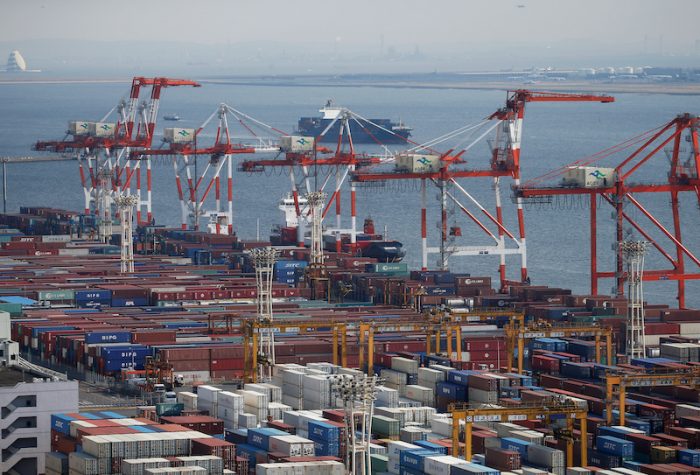Japan’s imports jumped to a record 10.2 trillion yen ($76 billion) in July, boosted by global inflation and the weak yen, outweighing exports and deepening the year-long trade deficit.
The country’s terms of trade are now the worst since 2015, which has been partly caused by the yen plunging 23% from a year earlier.
The trade data came on the heels of Reuters Tankan, which showed an improvement in Japan’s business sentiment in August, while a key gauge of corporate capital spending rebounded in June from the previous month’s decline.
While the mixed batch of data provides some evidence of resilience, policymakers are likely to maintain calls for more stimulus as the world’s third-largest economy struggles to shake off the hit from the pandemic and as the global outlook dims.
“Exports are likely to slow down ahead due to global tightening of monetary policy, which could sap corporate appetite for investment,” said Takeshi Minami, chief economist at Norinchukin Research Institute.
“Japan’s export-led economy will be losing momentum towards later this year and early next amid fears of global downturn.”
ALSO SEE: Hong Kong Exchange Profit Falls 27% on Weak Listings, Trading
Exports up 19% in July
Ministry of Finance data showed on Wednesday exports grew 19% in July from a year earlier, posting 17 straight months of gains led by US-bound shipments of cars and China-bound chip-related shipments, beating expectations for a 18.2% gain.
Imports rose 47% in July year-on-year to a record 10.2 trillion yen ($76.06 billion), driven by costs of crude oil, coal and liquid natural gas. That beat expectations for a 45.7% rise and overwhelmed exports, bringing the trade deficit to 1.4368 trillion yen in July.
It marked a full straight year of monthly trade deficits, the longest streak since the 32-month run of shortfalls to February 2015.
The yen’s 23% fall from a year earlier added to higher import costs, the data showed.
Capex Returns But Risks Ahead
Separate data showed Japan’s new machinery orders, a key gauge of capital spending, rose 0.9% in June from the previous month, reversing the previous month’s decline but below the 1.3% gain expected by economists.
In April-June, core machinery orders grew 8% from the previous quarter, posting the fastest growth since the final quarter of 2020. Firms are expecting a 1.8% decline in July-September core orders, pulling back from the solid growth seen in the second quarter, a government official told reporters.
However, there are downside risks such as China’s economic slowdown and a Covid-19 resurgence, the official added.
Reflecting corporate resilience, the Reuters Tankan sentiment index for manufacturers rose 4 points to 13 in August and is seen up further to 15 over next three months.
The service-sector index rose to 19 from 14 in July and was seen steady in November helped in part by the lifting of coronavirus curbs among industries such as tourism and eateries.
- Reuters with additional editing by Jim Pollard
ALSO SEE:
US, Japan Chips Alliance Aims to Thwart China Ambitions
























